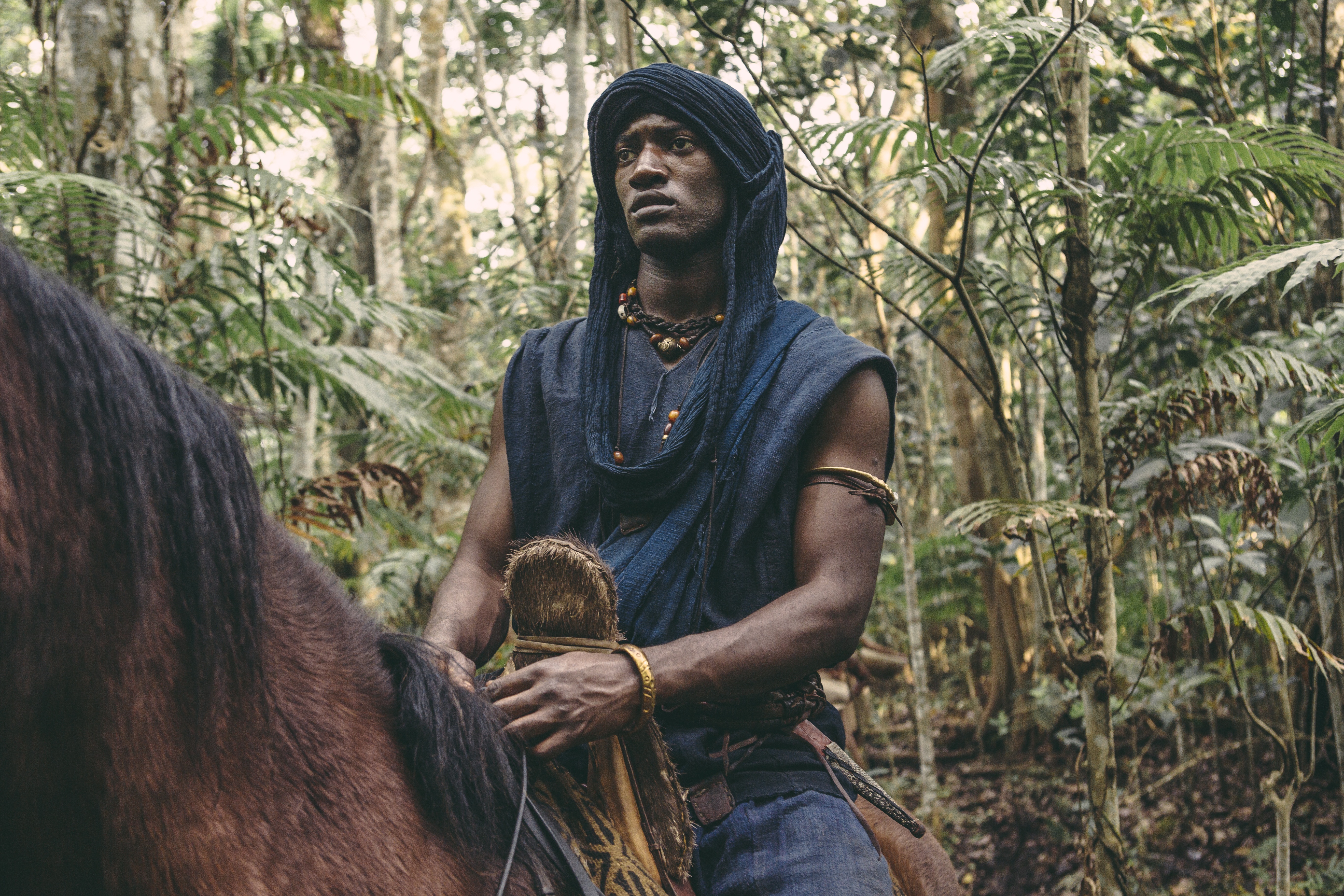I watched the Roots reboot last month via the screener stream.
The first episode, filmed in South Africa -- which is not the same landscape as the Gambia, from where Kunta Kinte supposedly came from, but what the heck) is the best. It's quite different from the beginning of the 70's Roots. This time is shows the European slave trade within the context of West Africa after at least two centuries of European meddling in African politics to make exploitation easier for them. Slavery is just at the point -- the end of the 17th century, the start of the 18th --when it becomes the atmosphere all West Africans breathe, the and primary business of Africans from rulers to hunters. Personal feuds play a role, war and political ambitions play roles. Still, at this moment, the community of Kunta Kinte's family is an extremely rich one in terms of spiritual practice, culture and sense of who we / me are in the world. There's even a bit when young Kunta wants to go to university -- Timbuktu, and needs to persuade his father that the expense is worth it.
I.e. Kunta comes from a sub-Sahellian aristocratic family ( which conveniently feeds into the feel-good myths that my ancestors were Egyptian pharaohs, Fidel stole all my Cuban family's plantations / business, in my former lives I was very rich, very beautiful, and ruled multitudes). Kunta's literate because his family practices Islam as well as their 'traditional' religion. We see him becoming well-trained in warrior skills included training, riding war stallions and fighting from horseback. Then, due to a feud, comes the capture by African slave hunters, followed by white buyer, branding and the slave ship.
The slave ship sequences are horrendous, far more so than in the 70's Roots. It felt as if the producers had gone to the International Slavery Museum in Liverpool, spending a lengthy period in the slave ship acoustic exhibit -- and took to heart the horrible groans, moans, shouts and other sounds -- all against the constant roar of the ship's hold, where they are shackled, pushing through the tons of water. Nothing is softened in this sequence, as in the 70's Roots, in which the white captain has a tortured conscience, instead of, as in the reboot, the captain raping a 'girl' every day. There is the seasickness, the filth, the disease, the madness, the suicides and even a failed rebellion. Some viewers may stop watching at that point because, "I don't need to see people vomiting on themselves -- it makes me queasy enough to vomit myself." But this is as close to the real representation or the true horror that a slave ship was as it gets. I admit to adverting my own eyes at times during the slave ship experience. Even so, I must defer to William Wells Brown's words, which are my bottom line on movie and television depictions of slavery: "Slavery has never been represented; Slavery never can be represented."
The Fiddler is a figure usually much absent in these depictions. It's Fiddler's capacity to entertain with servility that has provided him a relatively soft and secure condition (portrayed in by far the finest acting in this series, by Forest Whitaker. His Fiddler breaks the viewer's heart, or at least this one's (Kunta's character does not, despite the obvious intention of the series that he do so). Music plays a big role in the continuity of the family narrative and the background in this Roots (which was missing from the 70's Roots) and is well-done.
 |
| Adult Kizzy, played by Noni Rose |
 |
| Ben Vereen plays Chicken George |
Evidently there was no narrative way around what happens in this same sequence, since Haley wrote it in his novel and it was in the first Roots series as well, the preposterous situation is retained that George, given to an English lord as payment of a debt, remains a slave in 1800's England, when slavery was abolished on the island effectively in 1772. Haley claimed historian status, but demonstrated here and in other parts, that he didn't do basic research.
When George returns decades later to Georgia and Tom's plantation, the non-historic / factual contrivances get much worse. The final episode is the Civil War and the aftermath. It turns ridiculous -- the Kinte men galloping, walking by foot, back-and-forth between Tennessee and Georgia, the whole family moving to Tennessee en masse without any white people harassing, robbing or even killing them.*
Nevertheless, with all its flaws and serious errors, like the first Roots, for people who haven't thought about and know nothing about this central history of the U.S., this series might hit their consciousness like a bomb, which can only be good for us all.
-----------------------------
* At this point Roots becomes as nonsensical as Underground , which in 1857 -- the Fugitive Slave Act era, a group of enslaved people, including small children and infants, run from interior Georgia, overland 6 - 8 hundred miles to "the north," via a fantasy "underground railroad."
This is not where or how the so-called underground railroad operated, for obvious reasons of geography and distance. Not to mention the many other preposterosities in the series, many of them obviously included as tasteless, non-factual, leering pandering to an audience's pornographic fantasies about antebellum slavery,.



No comments:
Post a Comment